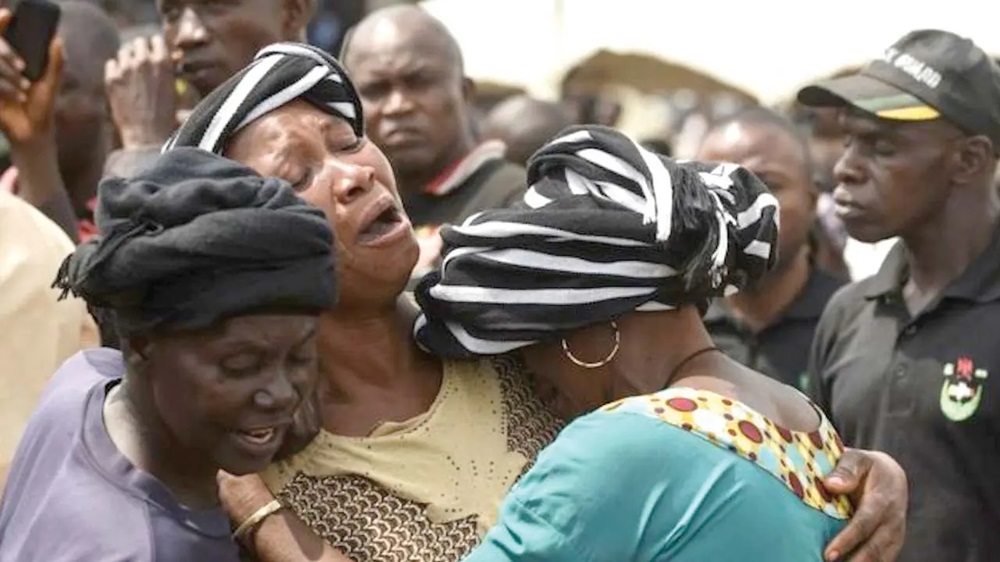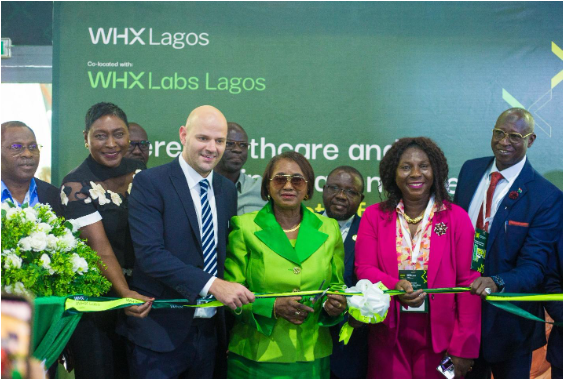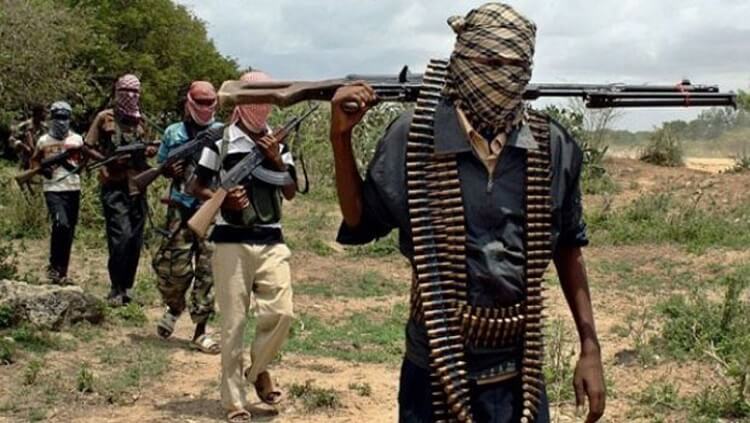Northern Governors, Stop The Mourning; Secure The People

At least 52 people, including minors, were reported dead after coordinated attacks on some communities in Bokkoss Local Government Area of Plateau State last week. The assailants were said to have raided at least six villages — Ruwi, Mangor, Daffo, Manguna, Hurti, and Tadai — killing and razing houses, and destroying farm produce.
The Christian Association of Nigeria, Jam’atul Nasirul Islam and the Arewa Consultative Forum have all condemned the bloodletting as senseless, and called for more concerted efforts to address the slide to anarchy in most parts of the North.
Senseless bloodletting has become a recurring decimal in the North, especially in Plateau and Benue states where clashes between farmers and herders have exacerbated the crisis.
A report on genocide in Nigeria launched in 2020 by the International Committee on Nigeria revealed that herder/farmer clashes claimed 17, 284 lives across the country, 2000-2019. Within the period, over 13,079 were killed in the three states of Plateau, Kaduna and Benue alone!
Another report quotes the death toll in the three states as approximately between 2,000 to 3000 from 2016 to 2023. Till date, there is hardly a day that violent clashes leading to deaths are not reported from these areas. Yet official responses especially at state levels have being reactionary and not proactive.
Governors of the 19 northern states under the auspices of the Northern Governors Forum have met dozens of times since 1999 over security challenges in the region. But these summits have become mere talk shops where governors come to express their frustrations. There are no concrete to-do list as individuals and as a collective on the downward slope to anarchy in the region.
In May 2024 when the NGF under the leadership of Governor of Gombe, Muhammadu Inuwa Yahaya, met on April 2024 at the Council Chamber, Sir Kashim Ibrahim House, Kaduna, to discuss security, the communique issued at the end of the meeting had nothing on how to address insecurity in the zone.
The governors seem to have left the security of their states to the Federal Government and the security agencies. Out of 13 items on the communique signed by Governor Yahaya, only one touched on security, and it was a commendation. It stated, “The Forum commended its leadership for engaging with the National Security Adviser, Service Chiefs, Coalition of Northern Civil Society groups and other relevant stakeholders in charting a way forward for sustainable peace and stability in the North.”
But up till today, no one has unveiled the way forward on security for the north, especially the violence-prone states of Plateau, Benue and Kaduna.
The reaction of the NGF to the mindless slaughter of innocent people in Bokkos LGA of Plateau last week is a reminder that the governors of the North are still sleeping and need to awake from their slumber.
It would appear that none of the governors, perhaps, aside the Governor of Plateau State, Caleb Mutfwang, was outraged enough to speak strongly on the genocidal attack. The NGF merely issued a statement that was nothing more than a gesture of resignation. A statement issued by a media aide of the Chairman of the Forum and Governor of Gombe State merely condemned the violence as a threat to the unity and stability of the region.
“As Northern Governors, we will continue to take deliberate steps to end this cycle of violence by strengthening security collaboration, promoting dialogue, and implementing policies that encourage peace and unity,” the statement said. He urged community leaders, religious groups, and civil society organisations to support government efforts by preaching peace, tolerance, and forgiveness, emphasising that no meaningful development can take place in an atmosphere of violence and fear.
Northern governors must move beyond sermonising to implementing concrete actions to stop the regular bloodbath and show that lives matter to them. It is not enough to support the federal security forces; states must also evolve their own local security arrangement that prioritises preventing of violence through intelligence gathering and collaboration with security agencies.
In the absence of state police, there is no reason why the states cannot establish their own security forces in the mould of the Amotekun in the Southwest which has helped states in the region prevent acts of terrorism and arrested suspects. States must invest in training and equipping local intelligence officers and groups in intelligence gathering and rapid response to security threats in their communities, in collaboration with conventional security agencies.
What are states like Kaduna, Benue and Plateau waiting for? Are they waiting for more deaths before they take action? They should engage in honest dialogue with all stakeholders in their states and decide on how best to tackle the crisis in their different states.
There is no doubt that partnering with the Federal Government and security agencies is one of such ways since all the existing security agencies belong to the fedeFral Government. States must continue to support the gallant efforts of the security agencies in whatever ways required.
For instance, the recent action of Governor Mutfwang of Plateau to step up security surveillance and address the persistent security challenges in rural communities across the state is commendable. The state has partnered with Briech UAS Limited to acquire advanced drones for intelligence gathering and rapid response by security agencies.
Speaking at the unveiling of Briech UAS-manufactured drones and missiles in Kuje, Federal Capital Territory (FCT), Abuja, Governor Mutfwang, alongside the Chief of Defence Staff, General Christopher G. Musa, emphasised the critical role of technology in modern security operations. He noted that the partnership represents a fresh and innovative approach to tackling security threats in the state.
“The time is now to address these challenges that hinder national prosperity. One of my key aspirations for this year is to see Plateau State farmers return to their farms. The only way to achieve this is by providing them with adequate security coverage, both in the air and on the ground, ensuring their safety,” Gov Mutfwang said.
We also call on the NGF to immediately initiate dialogue with the Federal Government on how to implement the key recommendations of the panels of enquiry set up in the past on the immediate and remote causes of violence in the North, especially Plateau State.
It’s on record that at least six Commissions of Inquiry have been established to look into various crisis in Plateau State, with the last one the Chief Solomon D. Lar and Amb Yahaya Kwande led Presidential panel set up in 2010. The reports of these Commissions of Inquiry, which include those set up by the state government, remain unpublished and inaccessible and its recommendations never implemented. This is the time to ask for the implementation of the recommendations of the reports.
For instance, one of the key recommendations to end grazer/farmer conflicts by the Lar committee is the revival of abandoned gazetted cattle routes and reserves, and the establishment of new grazing reserves vulnerable communities, especially Barkin-Ladi, Bassa, Jos-South and Riyom Local Government Areas of Plateau State, as contained in the approved Government whitepaper on the Justice Niki Tobi Judicial Commission of Inquiry Report of 2001. But this has not been done more than 24 years after, obviously for lack of political will.
The governors, especially the governor of Plateau, must summon the political will to push for effective implementation of these recommendations if they want to put an end to the circle of violence.
We urge as many stakeholders had done, that the pattern of mass killings and mass burials repeated in different communities year after year, must be broken through firm and proactive measures by states and the Federal Government. The governors have mourned enough. It’s time for them to no more violence on our land.
Northern Governors, Stop The Mourning; Secure The People is first published on The Whistler Newspaper



